Fleurs du Mal Magazine



Attentie
Doorzichtiger is op zondagen het menen, en vaster
de zit. Waarom de winter hapert wenst schijnbaar echt
niemand te begrijpen. Amper hoorbaar nog is daar het
prevelen van delicate arrangementen, zijn daar mensen
op schaal alom. Ze denken allemaal zelf over van alles.
In aanhankelijkheid navigeren ze braaf vederlicht bedrog.
Bert Bevers
gedicht
Attentie
• fleursdumal.nl magazine
More in: Archive A-B, Archive A-B, Bevers, Bert
Poet Ocean Vuong’s debut novel is a shattering portrait of a family, a first love, and the redemptive power of storytelling.
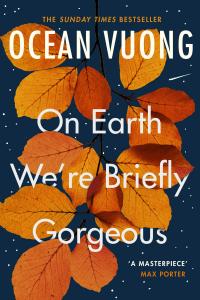 On Earth We’re Briefly Gorgeous is a letter from a son to a mother who cannot read. Written when the speaker, Little Dog, is in his late twenties, the letter unearths a family’s history that began before he was born — a history whose epicenter is rooted in Vietnam — and serves as a doorway into parts of his life his mother has never known, all of it leading to an unforgettable revelation. At once a witness to the fraught yet undeniable love between a single mother and her son, it is also a brutally honest exploration of race, class, and masculinity. Asking questions central to our American moment, immersed as we are in addiction, violence, and trauma, but undergirded by compassion and tenderness, On Earth We’re Briefly Gorgeous is as much about the power of telling one’s own story as it is about the obliterating silence of not being heard.
On Earth We’re Briefly Gorgeous is a letter from a son to a mother who cannot read. Written when the speaker, Little Dog, is in his late twenties, the letter unearths a family’s history that began before he was born — a history whose epicenter is rooted in Vietnam — and serves as a doorway into parts of his life his mother has never known, all of it leading to an unforgettable revelation. At once a witness to the fraught yet undeniable love between a single mother and her son, it is also a brutally honest exploration of race, class, and masculinity. Asking questions central to our American moment, immersed as we are in addiction, violence, and trauma, but undergirded by compassion and tenderness, On Earth We’re Briefly Gorgeous is as much about the power of telling one’s own story as it is about the obliterating silence of not being heard.
With stunning urgency and grace, Ocean Vuong writes of people caught between disparate worlds, and asks how we heal and rescue one another without forsaking who we are. The question of how to survive, and how to make of it a kind of joy, powers the most important debut novel of many years.
Ocean Vuong is the author of the debut novel, On Earth We’re Briefly Gorgeous, out from Penguin Press (2019) and forthcoming in 12 other languages worldwide. He is also the author of the critically acclaimed poetry collection, Night Sky with Exit Wounds, a New York Times Top 10 Book of 2016, winner of the T.S. Eliot Prize, the Whiting Award, the Thom Gunn Award, and the Forward Prize for Best First Collection. A Ruth Lilly fellow from the Poetry Foundation, his honors include fellowships from the Lannan Foundation, the Civitella Ranieri Foundation, The Elizabeth George Foundation, The Academy of American Poets, and the Pushcart Prize.
Vuong’s writings have been featured in The Atlantic, Harpers, The Nation, New Republic, The New Yorker, The New York Times, The Village Voice, and American Poetry Review, which awarded him the Stanley Kunitz Prize for Younger Poets. Selected by Foreign Policy magazine as a 2016 100 Leading Global Thinker, alongside Hillary Clinton, Ban Ki-Moon and Justin Trudeau, Ocean was also named by BuzzFeed Books as one of “32 Essential Asian American Writers” and has been profiled on NPR’s “All Things Considered,” PBS NewsHour, Teen Vogue, VICE, The Fantastic Man, and The New Yorker.
Born in Saigon, Vietnam, he lives in Northampton, Massachusetts, where he serves as an Assistant Professor in the MFA Program for Poets and Writers at Umass-Amherst.
On Earth We’re Briefly Gorgeous Paperback
by Ocean Vuong
1 Sept. 2020
Hardcover £19.17
Paperback £6.95
256 pages
Language: English
Publisher: Vintage
Dimensions 12.9 x 12.9 x 19.8 cm
ISBN-10 : 1529110688
ISBN-13 : 978-1529110685
• fleursdumal.nl magazine
More in: - Book News, - Book Stories, - Bookstores, Archive U-V, Archive U-V, Ocean Vuong
De Academie De Gouden Ganzenveer kent de Gouden Ganzenveer 2021 toe aan literatuurcriticus en auteur Margot Dijkgraaf. Jet Bussemaker maakte de laureaat bekend in het programma De Taalstaat op NPO Radio 1.

De Academie De Gouden Ganzenveer eert Margot Dijkgraaf vanwege haar grote rol als een sensibele en erudiete ‘ambassadeur van de letteren’, die verankerd is in Nederland, maar haar blik naar buiten richt. Zij brengt Nederlandstalige auteurs in Frankrijk en in andere Europese landen onder de aandacht en Franstalige – en daarmee ook Arabische en Afrikaanse – literatuur in Nederland. Met haar niet aflatende enthousiasme en ijver voor het ontsluiten van Europese literatuur – bijvoorbeeld blijkend uit haar initiatief voor de Europese Literatuurprijs – maakt ze belangrijke, maar minder bekende auteurs uit andere dan het Angelsaksische taalgebied toegankelijk voor een breed publiek.
De prijsuitreiking vindt plaats op maandag 20 september a.s. in Amsterdam. Een weerslag van deze bijeenkomst wordt vastgelegd in een speciale uitgave, die aan het eind van het jaar zal verschijnen. De Academie, een initiatief van het bestuur van stichting De Gouden Ganzenveer, kent jaarlijks deze culturele prijs toe. De leden zijn afkomstig uit de wereld van cultuur, wetenschap, politiek en het bedrijfsleven. Met deze onderscheiding wil de Academie het geschreven en gedrukte woord in het Nederlands taalgebied onder de aandacht brengen.
Voorgaande laureaten zijn Abdelkader Benali, Ian Buruma, Antjie Krog, Arnon Grunberg, Xandra Schutte, Geert Mak, David Van Reybrouck, Ramsey Nasr, Annejet van der Zijl, Remco Campert, Joke van Leeuwen, Adriaan van Dis, Joost Zwagerman, Tom Lanoye, Peter van Straaten, Maria Goos, Kees van Kooten, Jan Blokker en Michaël Zeeman.
Margot Dijkgraaf (1960) is literatuurcriticus, schrijver, interviewer en curator en schrijft al zo’n dertig jaar over literatuur, voornamelijk voor NRC. Ze publiceerde boeken over Franse en Europese letteren, over Hella S. Haasse en Cees Nooteboom. Haar recentste boek is Met Parijse pen. Literaire omzwervingen (met fotograaf Bart Koetsier, Boom, 2020). Met een scala aan partners in de internationale boekenwereld organiseert ze in binnen- en buitenland literaire activiteiten. Recent was ze intendant van de campagne Les Phares du Nord van het Nederlands Letterenfonds en de Nederlandse ambassade in Parijs, waarbij Nederlandstalige literatuur eregast was op grote Franse festivals. Binnenkort staat die centraal op het festival Le livre sur les quais in Morges, Zwitserland. Dijkgraaf is de initiatiefnemer van de Europese Literatuurprijs en co-organiseert jaarlijks de European Literature Night en de State of the European Literature, in samenwerking met EUNIC en de UvA/geesteswetenschappen. Ze was onder andere directeur van het Centre Français du livre bij Maison Descartes, van Academisch-cultureel Centrum SPUI25 en vervult advies-, jury- en bestuursfuncties in het culturele veld. Momenteel werkt ze aan een boek dat de voorlopige titel heeft In de voetsporen van mijn grootvader (Atlas Contact).
De Gouden Ganzenveer
De prijs wordt – zo mogelijk jaarlijks – toegekend aan een persoon of instituut vanwege zijn of haar grote betekenis voor het geschreven en gedrukte woord in de Nederlandse taal. Het bestuur van de stichting heeft de selectie van de kandidaten en de besluitvorming over de laureaat in handen gegeven van Academie De Gouden Ganzenveer. De Academieleden zijn afkomstig uit de wereld van cultuur, politiek, wetenschap en bedrijfsleven.
Ieder van hen heeft blijkt gegeven van betrokkenheid bij de Nederlandstalige cultuur; zij zijn op persoonlijke titel gevraagd. Eenmaal per jaar komen de leden bijeen om een besluit te nemen over de nieuwe laureaat. Deze besloten Academievergadering wordt gehouden in Museum Meermanno | Huis van het Boek, te ’s-Gravenhage. De toekenning wordt in januari via de media bekendgemaakt waarna in april de feestelijke uitreiking van de Gouden Ganzenveer in Amsterdam volgt. De prijs bestaat uit een ganzenveer van goud en een jaar buitengewoon lidmaatschap van de Academie. In de loop van het jaar verschijnt een speciale uitgave die de verdiensten van de laureaat boekstaaft.
In 1955, bij het vijfenzeventigjarig bestaan van de Koninklijke Nederlandse Uitgeversbond, werd de Gouden Ganzenveer voor het eerst toegekend. De eerste laureaat was de Koninklijke Nederlandse Akademie van Wetenschappen. Met de prijs willen uitgevers – zo mogelijk jaarlijks – een persoon of instituut lauweren vanwege zijn of haar grote betekenis voor het geschreven en gedrukte woord in de Nederlandse taal. In totaal is de prijs 34 keer uitgereikt. In 2000, na het samengaan van de Koninklijke Nederlandse Uitgeversbond, de Nederlandse Organisatie van Tijdschrift-Uitgevers en de Vereniging De Nederlandse Dagbladpers in het nieuwe Nederlandse Uitgeversverbond (NUV), werd de culturele prijs ondergebracht in een aparte stichting.
Op maandag 20 september a.s. ontvangt Margot Dijkgraaf de Gouden Ganzenveer 2021.
Uitgebreide informatie is te vinden op www.goudenganzenveer.nl
Foto: ©Cyril Marcilhacy
• fleursdumal.nl magazine
More in: #Editors Choice Archiv, - Book News, - Book Stories, Archive C-D, Archive C-D, Art & Literature News, Awards & Prizes, FDM in Paris, Margot Dijkgraaf, TRANSLATION ARCHIVE
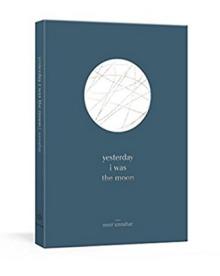 yesterday i was the moon centers around themes of love and emotional loss, the catharsis of creating art, and the struggle to find one’s voice. Noor’s poetry ranges from succinct universal truths to flowery prose exploring her heritage, what it means to find a physical and emotional home, and the intimate and painful dance of self-discovery. Her poetry and art has already inspired thousands of fans on Instagram to engage with her words through visual journal entries and posts of their own, and her fan base only continues to grow.
yesterday i was the moon centers around themes of love and emotional loss, the catharsis of creating art, and the struggle to find one’s voice. Noor’s poetry ranges from succinct universal truths to flowery prose exploring her heritage, what it means to find a physical and emotional home, and the intimate and painful dance of self-discovery. Her poetry and art has already inspired thousands of fans on Instagram to engage with her words through visual journal entries and posts of their own, and her fan base only continues to grow.
Noor Unnahar is a young female voice with power and depth. The Pakistani poet’s moving, personal work collects and makes sense of the phases of collapsing and rebuilding one’s self on the treacherous modern path from teenager to adult. Tinged with the heartbreak of a broken home and the complexity of a rich cultural background, yesterday i was the moon stands out from the Insta-poetry crowd as a collection worth keeping.
“yesterday — i was the moon
today — just an eclipse
something in me travels; some days it’s to the dark
some days it’s to the light”
yesterday i was the moon
by Noor Unnahar
Category: Poetry
Paperback
$14.99
Publisher : Clarkson Potter (2018)
Language : English
160 pages
ISBN-10 : 9780525576013
ISBN-13 : 978-0525576013
• fleursdumal.nl magazine
More in: #Editors Choice Archiv, Archive U-V

Ironic Poem
about Prostitution
When I was young and had no sense
In far-off Mandalay
I lost my heart to a Burmese girl
As lovely as the day.
Her skin was gold, her hair was jet,
Her teeth were ivory;
I said, “for twenty silver pieces,
Maiden, sleep with me”.
She looked at me, so pure, so sad,
The loveliest thing alive,
And in her lisping, virgin voice,
Stood out for twenty-five.
George Orwell
(1903 – 1950)
• fleursdumal.nl magazine
More in: Archive O-P, Archive O-P, George Orwell, Orwell, George
This National Book Award-winning debut poetry collection is a “powerfully evocative” (The New York Review of Books) meditation on the black female figure through time.
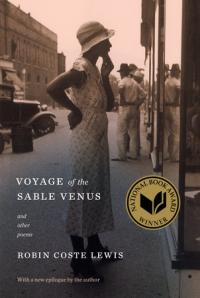 Robin Coste Lewis’s electrifying collection is a triptych that begins and ends with lyric poems meditating on the roles desire and race play in the construction of the self.
Robin Coste Lewis’s electrifying collection is a triptych that begins and ends with lyric poems meditating on the roles desire and race play in the construction of the self.
In the center of the collection is the title poem, “Voyage of the Sable Venus,” an amazing narrative made up entirely of titles of artworks from ancient times to the present—titles that feature or in some way comment on the black female figure in Western art. Bracketed by Lewis’s own autobiographical poems, “Voyage” is a tender and shocking meditation on the fragmentary mysteries of stereotype, juxtaposing our names for things with what we actually see and know.
A new understanding of biography and the self, this collection questions just where, historically, do ideas about the black female figure truly begin—five hundred years ago, five thousand, or even longer? And what role did art play in this ancient, often heinous story? Here we meet a poet who adores her culture and the beauty to be found within it. Yet she is also a cultural critic alert to the nuances of race and desire—how they define us all, including her own sometimes painful history.
Lewis’s book is a thrilling aesthetic anthem to the complexity of race—a full embrace of its pleasure and horror, in equal parts.
” To keep you happy, I decorated the bars.
Because you had never been hungry, I knew
I could tell you the black side
of my family owned slaves.
I realize this is perhaps
the one reason why I love you,
( . . . . . ) “
Robin Coste Lewis is the author of Voyage of the Sable Venus (2015), a finalist for the National Book Award. Her work has appeared in various journals and anthologies, including The Massachusetts Review, Callaloo, The Harvard Gay & Lesbian Review, Transition, and VIDA.
Lewis earned her BA from Hampshire College, her MFA from NYU’s Creative Writing Program, and an MTS degree in Sanskrit and comparative religious literature from Harvard Divinity School. A Cave Canem fellow, a Los Angeles Institute of the Humanities fellow, Lewis was also awarded a Provost’s fellowship in the Creative Writing & Literature PhD Program at USC. Other fellowships and awards include the Caldera Foundation, the Ragdale Foundation, the Headlands Center for the Arts, and the Summer Literary Seminars in Kenya. She was a finalist for the International War Poetry Prize, the National Rita Dove Prize, and semi-finalist for the “Discovery”/Boston Review Prize and the Crab Orchard Series Open Poetry Prize.
Lewis has taught at Wheaton College, Hunter College, Hampshire College and the NYU Low-Residency MFA in Paris. Born in Compton, California, her family is from New Orleans.
Voyage of the Sable Venus
and Other Poems
by Robin Coste Lewis
Category: Poetry
Paperback
$19.95
2017
ISBN 9781101911204
Publisher : Knopf (1st edition 2015)
Language : English
160 pages
ISBN-10 : 1101875437
ISBN-13 : 978-1101875438
• fleursdumal.nl magazine
More in: #Editors Choice Archiv, Archive K-L
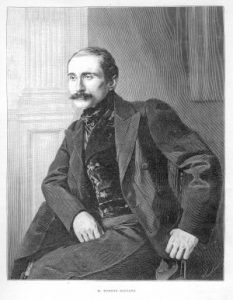
Fabre Des Insectes
I
Sachant que l’humble arpent d’un jardinet claustral
Contient plus de secrets qu’un mortel n’en pénètre,
Il vit seul comme un pâtre et pauvre comme un prêtre,
Et d’un grand feutre noir coiffé comme Mistral.
C’est un homme incliné, modeste et magistral,
Qui plus qu’un monde au loin cherche à ses pieds un être,
Et qui, ne regardant que ce qu’on peut connaître,
Préfère un carré d’herbe à tout le ciel astral.
Pensif, -car dans ses doigts il a tenu des ailes, –
Poursuivant les honneurs moins que les sauterelles,
-Les sommets rêvent-ils d’être des sommités? –
Il nous offre une vie égale aux fiers poèmes,
Et des livres qu’un jour il faudra que ceux mêmes
Feignent de découvrir, qui les ont imités.
II
Une vie admirable. Aucun homme n’a dû
Fréquenter de plus près la maternelle argile.
Son bosquet de lilas lui tient lieu d’Évangile.
D’un Fabre d’Eglantine il semble descendu.
Il guette tout un jour ce qu’il n’a qu’entendu
Il ne peut s’ennuyer, sachant par coeur Virgile.
S’il découvre un insecte éclatant et fragile,
Il lui donne le nom du fils qu’il a perdu.
Quand il rentre, le soir, avec sa découverte,
La Vérité peut-être est dans sa boîte verte,
Car du puits d’un insecte elle peut émerger.
Voilà sa vie. Elle est simple, triste, ravie.
Il n’enlève jamais son chapeau de berger.
Et ses livres se font tout seuls, avec sa vie.
Il a vu, du plus haut problème effleurant l’x,
Jusqu’où l’instinct triomphe et quand il capitule,
Et comment le papier, le coton et le tulle
Sont faits par la Psyché, la Guêpe et le Bombyx.
O peuple merveilleux de métal et d’onyx!
Le Grillon d’Italie est un petit Catulle.
Le Pompile attaquant tout seul la Tarentule
Est grand comme Roland ou Vercingétorix.
Tout l’univers est là… combattants, parasites…
L’un vit de ses exploits, l’autre de ses visites.
Il y a le maçon, le potier, le tailleur.
Tu ravaudes, Clotho; Balanin, tu perfores;
Bousier, tu suis ton nom; toi, Cigale, ton coeur;
Et vous, vous attendez, dans un coin, Nécrophores!
III
Les Insectes Lui Parlent.
«Et nous, nous nous chargeons de ton Apothéose.
Car nous fûmes toujours les amis les meilleurs.
Nous, Tes Insectes, ceux de Vaucluse et d’ailleurs,
Voulons tous dans ta gloire être pour quelque chose.
«La fourmilière sculpte, et la ruche compose.
Une étoile d’argent se tisse entre deux fleurs.
Tu sais que nous savons réussir des splendeurs.
Fabre, le souviens-tu de la chapelle rose?
«Te souviens-tu qu’un jour, en haut du mont Veutoux,
Tu vis un temple obscur et bâti loin de tous
Sur lequel nous étions cent mille coccinelles?
«La chapelle était rose et semblait en corail!
Ainsi, la solitude aura sur son travail
Une gloire vivante et faite avec des ailes.»
Edmond Rostand
(1868-1918)
Fabre Des Insectes
• fleursdumal.nl magazine
More in: Archive Q-R, Archive Q-R, MUSEUM OF NATURAL HISTORY - department of ravens & crows, birds of prey, riding a zebra, spring, summer, autumn, winter, Natural history

Perzische kievitsbloem
(Fritillaria persica)
Je blaadjes glanzen amper aarzelend klokvormig,
mauve en zacht als het velletje van een pruim.
Vochtig in de halfschaduw op een zwart grondje
bestond je in oude dromen reeds, elke lente steeds
de lampenkapjesbloemetjes vrolijk in het gelid.
Hommeltjes gebruiken ze blij als schommeltjes.
Bert Bevers
Perzische kievitsbloem
(Fritillaria persica)
• fleursdumal.nl magazine
More in: Archive A-B, Archive A-B, Bevers, Bert, Natural history

VOORGEVOEL
H. Marsman
Hij met ontstekingen in de longen,
bloed en etter, blaffende dagen, wekenlang
in bed, in niet aflatende strijd.
En die andere hij, niet veel jonger, getroffen
door flitsen uit het schoolboek, in borst en maag
de dood in een schaars verlicht ruim.
Beiden ouder. Hij met de als kalmte
vermomde vrees dat een nacht op zee
daadwerkelijk het einde zou worden.
En hij afwisselend wetend en radend in besef
van een doffe plof, scheurend ijzer, geschreeuw.
Dan benamen donker en kou de adem,
nam de druk toe, knarste het schip,
schoof het zuchtend naar de bodem,
het zwart schuimende dal der Durance,
in een hart voorgoed doordrenkt van azuur.
Albert Hagenaars
Voorgevoel
H. Marsman
Gedicht
• Voorpublicatie uit de nieuwe bundel Pelgrimsgrond
• fleursdumal.nl magazine
More in: Archive G-H, Archive G-H, Hagenaars, Albert
Dichter Ingmar Heytze wordt door bezoekers van zijn optredens nog wel eens verward met een cabaretier of comedian. De belangrijkste reden daarvoor is dat hij niet alleen zijn gedichten en vertalingen geweldig voordraagt, maar er ook van alles bij vertelt ter inleiding, uitleiding of gewoon als aangenaam geouwehoer tussendoor.
 Heytze houdt zich daarbij ver van interpretatie van zijn eigen werk. Dat moet de lezer of luisteraar zelf maar doen: ‘Een gedicht is net een mop, als je hem moet uitleggen was het geen goede mop, en als hij wel goed was, is hij dat na uitleg zeker niet meer.’ Dat neemt niet weg dat hij in de inleidingen, die inderdaad wel iets weg hebben van miniconferences, veel van zijn poëzieopvattingen en werkwijze prijsgeeft. De goede verstaander kan er zonder veel moeite Heytzes poëtica uit destilleren. Dit zijn de honderd gedichten die iedereen van Heytze in de kast zou moeten hebben, voorzien van tekst en uitleg in de vorm van de anekdotes, verhalen, betogen en improvisaties waarmee hij furore maakte tijdens duizenden voordrachten in Nederland en België. Duik in het poëtisch universum van een van de vitaalste dichters van Nederland.
Heytze houdt zich daarbij ver van interpretatie van zijn eigen werk. Dat moet de lezer of luisteraar zelf maar doen: ‘Een gedicht is net een mop, als je hem moet uitleggen was het geen goede mop, en als hij wel goed was, is hij dat na uitleg zeker niet meer.’ Dat neemt niet weg dat hij in de inleidingen, die inderdaad wel iets weg hebben van miniconferences, veel van zijn poëzieopvattingen en werkwijze prijsgeeft. De goede verstaander kan er zonder veel moeite Heytzes poëtica uit destilleren. Dit zijn de honderd gedichten die iedereen van Heytze in de kast zou moeten hebben, voorzien van tekst en uitleg in de vorm van de anekdotes, verhalen, betogen en improvisaties waarmee hij furore maakte tijdens duizenden voordrachten in Nederland en België. Duik in het poëtisch universum van een van de vitaalste dichters van Nederland.
Ingmar Heytze (1970) publiceerde talloze dichtbundels, drie dagboeken en een bundel miniaturen. In 2008 ontving Heytze de C.C.S. Croneprijs voor zijn gehele oeuvre. In 2012 verscheen zijn bundel Ademhalen onder de maan. Een jaar later verscheen Reisoefeningen, waarin Heytze verslag doet van zijn gevecht tegen reisangst, die hem vele jaren aan zijn woonplaats Utrecht kluisterde. Met Ademhalen onder de maan won Ingmar Heytze de Hugues C. Pernathprijs 2013. In 2015 verscheen De man die ophield te bestaan, over het vaderschap, en Utrecht voor beginners & gevorderden. In 2016 verscheen zijn verzamelbundel Voor de liefste onbekende, met daarin bijna al zijn gedichten (gepubliceerde én ongepubliceerde).
Ingmar Heytze: De honderd van Heytze
224 pagina’s
Omslag: Rouwhorst + Van Roon
ISBN: 9789463810678
Nur: 306
17×24 cm
€ 25,00
• fleursdumal.nl magazine
More in: Archive G-H, Archive G-H, Heytze, Ingmar
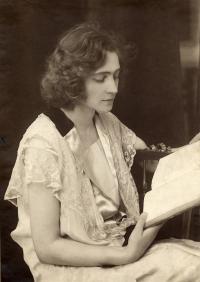
ZAADMAAND
Daar stond een late zonnebloem
Te sterven in de laatste zon;
En niemand in de wereld,
Die haar nog helpen kon.
Een mensenhand gerimpeld
En door geen werk vergroofd,
Die sneed van ‘t mager halske
Dat beu-gebogen hoofd.
En op z’n smalle vingren
Woog het van zaden zwaar.
Ze hebben elkaar bekeken
En hij werd bang van haar.
En schouwend in zich zelve,
Voelend z’n groot verval:
“Zal ik zo prachtig wezen,
Als God mij plukken zal?”
Alice Nahon
(1896-1933)
Zaadmaand
• fleursdumal.nl magazine
More in: Archive M-N, Archive M-N, Nahon, Alice

Ave Maria
Es will das Licht des Tages scheiden;
Nun bricht die stille Nacht herein.
Ach, könnte doch des Herzens Leiden
So, wie der Tag vergangen sein!
Ich leg’ mein Flehen dir zu Füßen;
O, trag’s empor zu Gottes Thron,
Und laß, Madonna, laß dich grüßen
Mit des Gebetes frommem Ton:
Ave, ave Maria!
Es will das Licht des Glaubens scheiden;
Nun bricht des Zweifels Nacht herein.
Das Gottvertrau’n der Jugendzeiten,
Es soll mir abgestohlen sein.
Erhalt’, Madonna, mir im Alter
Der Kindheit frohe Zuversicht;
Schütz’ meine Harfe, meinen Psalter;
Du bist mein Heil, du bist mein Licht!
Ave, ave Maria!
Es will das Licht des Lebens scheiden;
Nun bricht des Todes Nacht herein.
Die Seele will die Schwingen breiten;
Es muß, es muß gestorben sein.
Madonna, ach, in deine Hände
Leg’ ich mein letztes, heißes Fleh’n:
Erbitte mir ein gläubig Ende
Und dann ein selig Aufersteh’n!
Ave, ave Maria!
Karl May
(1842-1912)
Ave Maria
• fleursdumal.nl magazine
More in: Archive M-N, Archive M-N, Karl May
Thank you for reading Fleurs du Mal - magazine for art & literature